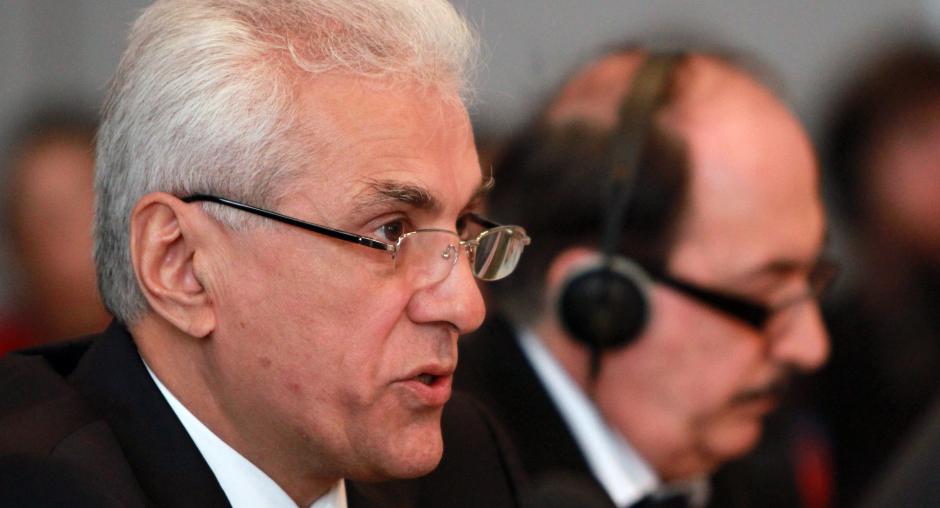Tajikistan’s Foreign Minister addresses OSCE, reconfirms commitments, calls for political dialogue to solve economic and environmental problems

VIENNA, 31 March 2011 – Tajikistan’s Foreign Minister Hamrokhon Zarifi in his address to the OSCE Permanent Council today reconfirmed the country’s commitments to its OSCE obligations in all dimensions of security, stressed the need for active international involvement in economic rehabilitation of Afghanistan, and the importance of promoting political dialogue in Central Asia to overcome differences on water and energy.
Zarifi emphasized Tajikistan’s commitment to further strengthening the OSCE through its evolution “as a fully-fledged international organization with a legal personality” and to ensure a balanced development of all three security dimensions. Zarifi discussed in particular the human dimension emphasizing the Tajikistan’s commitments in the fields of democratization, human rights and fundamental freedoms, the rule of law and the development of civil society. He argued that “problems surrounding basic human rights, including religious freedoms and freedom of the media, must be examined in a balanced manner, taking into consideration the interests of ensuring security and stability in society.” “Freedom of the media and freedom of speech should not contravene the law or run against the ethical and professional standards of journalism,” the Minister stressed.
Speaking about the threats and challenges to the OSCE region’s security, Zarifi explained that security in Central Asia is inextricably linked with the situation in Afghanistan – a country with which Tajikistan shares more than 1,400 kilometres of “extremely intricate” borders. He mentioned bilateral practical assistance provided to Afghanistan, including the construction of high-voltage power lines, training of civilian and military personnel, and the construction of railways, highways and bridges linking the two countries.
“It is impossible to ensure stability in Afghanistan through military means alone,” he said. “The OSCE participating States must understand that the formula for resolving the situation in Afghanistan can consist not only of military action, but also of the active involvement of international economic and financial mechanisms and institutions with a view to rehabilitating the country.”
Zarifi praised the OSCE’s support to Tajikistan, in particular, efforts to help strengthen the country’s southern borders, including through the activities of the OSCE Border Management Staff College in Dushanbe, and asked for OSCE assistance in strengthening capacity for countering the threats of drug-related crime from Afghanistan.
Environmental and energy problems in Central Asia, including water management, are seriously hampering the development of regional co-operation, Zarifi said. “We see a key role for the OSCE in promoting political dialogue in Central Asia with a view to overcoming differences of opinion on an entire range of problems concerned with water and energy, the creation of an integrated water resource management system and assistance to the countries of the region in achieving a long-term solution for this problem through compromises,” he said, suggesting that the experience already gained by European countries through co-operation in the Danube river basin could be used.
The Permanent Council is one of the main regular decision-making bodies of the OSCE. It convenes weekly in Vienna to discuss developments in the OSCE area and to make appropriate decisions.
